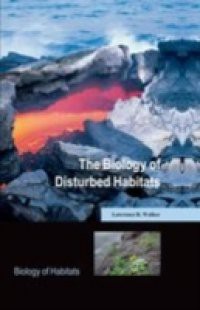This book provides the first global synthesis of the biology of disturbed habitats and offers readers both the conceptual underpinnings and practical advice required to comprehend and address the unprecedented environmental challenges facing humans. Every habitat on earth has been impacted by natural disturbances such as volcanoes, earthquakes, landslides, fires, floods, and droughts. Humans have contributed many additional disturbances such as mining, urbanization,forestry, agriculture, fishing, and recreation. These anthropogenic disturbances modify and often exacerbate the effects of the natural disturbances. Together, they result in the abrupt loss of biomass or ecosystem structure and function to create denuded surfaces where novel mixtures of native andnon-native microbes, plants, and animals establish, grow, and die. The Biology of Disturbed Habitats examines both natural and anthropogenic disturbances in aquatic and terrestrial habitats. It explores how nutrients and productivity are altered in the disturbed habitats, the effects of disturbance on biodiversity, and the spatial and temporal dynamics of organisms that colonize disturbed habitats. This book also addresses how to manage disturbances through appropriate conservation andrestoration measures, and discusses how climate change and overpopulation now represent the most challenging disturbances at a global scale.

